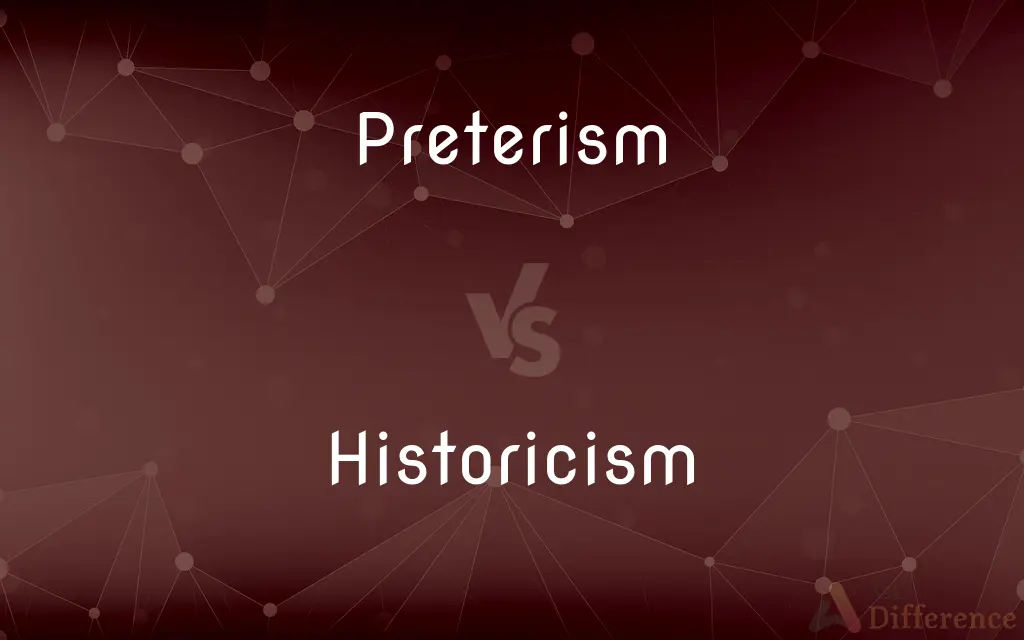Preterism vs. Historicism — What's the Difference?

Difference Between Preterism and Historicism
ADVERTISEMENT
Compare with Definitions
Preterism
Preterism, a Christian eschatological view, interprets some (partial preterism) or all (full preterism) prophecies of the Bible as events which have already happened. This school of thought interprets the Book of Daniel as referring to events that happened from the 7th century BC until the first century AD, while seeing the prophecies of the Book of Revelation as events that happened in the first century AD. Preterism holds that Ancient Israel finds its continuation or fulfillment in the Christian church at the destruction of Jerusalem in AD 70.
Historicism
Historicism is the idea of attributing significance to elements of space and time, such as historical period, geographical place, and local culture, in order to contextualize theories, narratives and other interpretative instruments. The term historicism (Historismus) was coined by German philosopher Karl Wilhelm Friedrich Schlegel.
Preterism
A Christian doctrine holding that at least some of the apocalyptic prophecies in the Bible describe events that occurred within the first century after Jesus's death, rather than events that lie still in the future.
Historicism
A theory that events are determined or influenced by conditions and inherent processes beyond the control of humans.
Preterism
(theology) A Christian eschatological view that interprets Biblical prophecies as events which happened in the first century {{A.D.}}.
ADVERTISEMENT
Historicism
The view that historical awareness is crucial for adequate understanding in a particular field or in general.
Historicism
Art & Architecture The deliberate use or revival of historical styles in contemporary works.
Historicism
(Philosophy) The view that historical periods should be studied without imposing anachronistic categories of evaluation.
Historicism
A theory that events are influenced by historical conditions, rather than by people.
Historicism
(arts) The use of historical styles in contemporary art.
Historicism
(theology) A method of interpretation in Christian eschatology which attempts to associate Biblical prophecies with actual historical events and symbolic beings with historical persons or societies.
Share Your Discovery

Previous Comparison
Bag vs. Poke
Next Comparison
Tambour vs. Tambourine













































